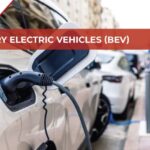The automotive industry is undergoing a significant transformation, with a growing focus on reducing emissions and promoting sustainable mobility. Two technologies have emerged as key players in this transition: hybrid vehicles and electric vehicles (EVs). While EVs have gained significant attention in recent years, Toyota Chairman Akio Toyoda has sparked a debate by suggesting that hybrids may be more effective in reducing emissions in certain regions.
The Environmental Impact of Hybrids and EVs
To understand the debate, it’s essential to examine the environmental impact of both hybrids and EVs. Hybrids combine a conventional internal combustion engine with an electric motor, reducing fuel consumption and emissions. EVs, on the other hand, run solely on electric power, producing zero tailpipe emissions. According to Toyota’s data, 27 million hybrids have had a similar carbon reduction impact as 9 million EVs. This is attributed to the lower carbon footprint of hybrid production and the fact that hybrids can operate efficiently in regions with limited charging infrastructure.

The Role of Context in Carbon Reduction
The environmental benefits of EVs depend heavily on the local electricity grid.
In regions where electricity is generated primarily from fossil fuels, the carbon footprint of EVs can be significant. In contrast, hybrids rely less on external power, making them potentially more eco-efficient in carbon-intensive markets.
Efficiency vs. Idealism
The debate over hybrids and EVs highlights the complexity of achieving carbon neutrality in transportation. While EVs may dominate headlines, hybrids offer a practical alternative that balances lower emissions with scalability. Toyota’s hybrid defense adds depth to the electrification debate, emphasizing the need for a nuanced approach that considers regional variability and technological advancements.
Key Considerations
Several factors must be considered when evaluating the effectiveness of hybrids and EVs:
- Regional Variability: The effectiveness of hybrids versus EVs depends on local infrastructure, energy mix, and consumer behavior.
- Scalability: Hybrids might offer a practical bridge to electrification in emerging economies or regions with limited charging infrastructure.
- Technological Advancements: Advancements in battery technology and recycling are expected to reduce the carbon footprint of EVs over time.

A Multi-Pathway Approach
Ultimately, the debate highlights the need for a multi-pathway approach to reducing emissions in transportation. Rather than relying on a single technology, manufacturers and policymakers should consider a range of options, including hybrids, EVs, and other alternative powertrains.This approach would allow for a more nuanced and effective transition to sustainable mobility, taking into account regional differences and technological advancements.
Conclusion
The debate over hybrids and EVs serves as a reminder that the path to decarbonizing transportation is complex and multifaceted. While EVs may offer a promising solution for reducing emissions, hybrids provide a practical alternative that can be effective in certain regions. As the industry continues to evolve, it’s essential to consider a range of technologies and approaches, prioritizing a nuanced and effective strategy for reducing emissions and promoting sustainable mobility.









